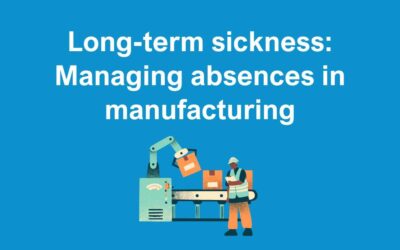We get asked HR related questions every day and each week we will be sharing our top question of the week that we have been asked here at The HR Booth.
In this week’s question of the week, Alistair discusses paternity leave.
Question
We have recently had a new appointment start with us and he is asking what happens as his wife is due a baby in November. Could you please give me some information on paternity leave?
Answer
If he has 26 weeks service, 15 weeks before the due date, he will be eligible for shared parental leave where he and his wife can effectively share her maternity leave. Not many males have taken up this option since this legislation came in during April, but it’s there if he’s eligible. However, if he has less than 26 weeks service then he will not be eligible for this.
Instead, he will be eligible for 2 weeks paternity leave, which can be taken in blocks of one week and must be taken within 56 days of the birth. He needs to give details of the dates he wishes to apply for and if he wants to change these he must give you 28 days’ notice.
He will be entitled to be paid Paternity Pay which is currently £139.58 per week. He can apply for a week’s annual leave and then Paternity Leave, allowing him 2 weeks off but without having to take 2 weeks at the lower rate of pay. Again, a lot of males tend to use annual leave and not apply for paternity leave due to the pay, but it’s there if he wants to take the time without impacting on his annual leave.
Key thing is to try and get some notice around the dates he wishes to take.
Any issues let me know.
Your Turn
Have any of your staff used shared parental leave since it came into place?
Let us know by leaving a comment.







